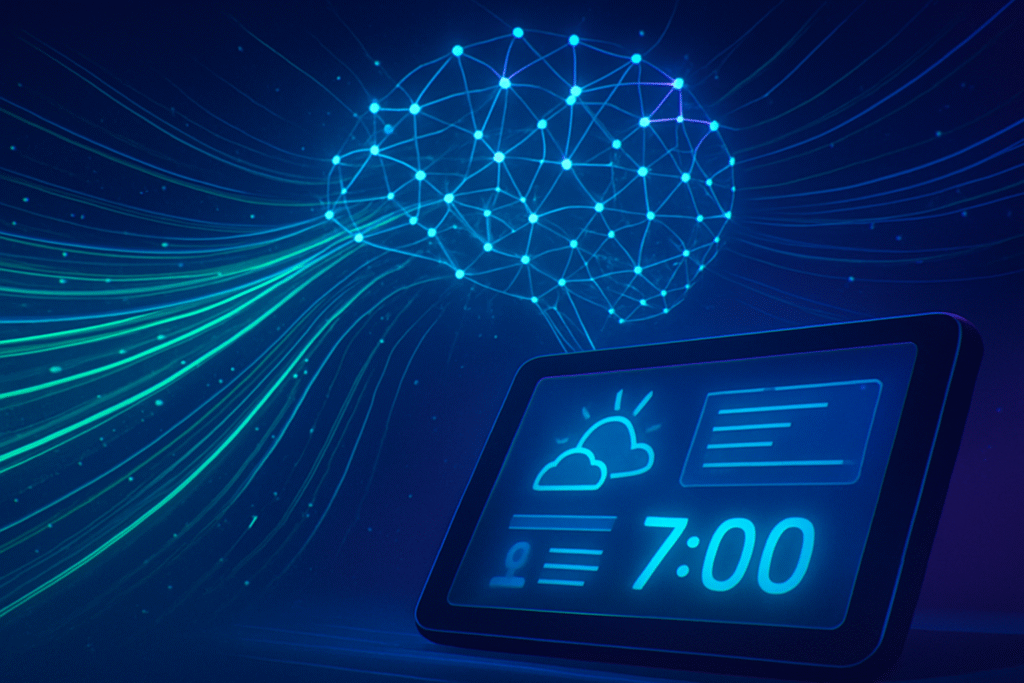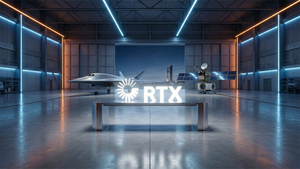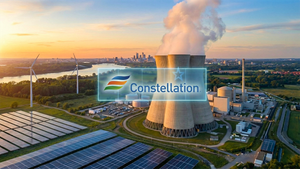
Meta Platforms (NASDAQ: META) is aggressively pushing into the personalized information space with its new AI-powered morning brief for Facebook users, internally dubbed "Project Luna." This ambitious initiative, currently in testing as of November 21, 2025, aims to deliver highly customized daily briefings, marking a significant strategic move to embed artificial intelligence deeply into its ecosystem and directly challenge competitors like OpenAI's ChatGPT and Google's Gemini. The immediate significance lies in Meta's explicit goal to make AI a daily habit for its vast user base, thereby deepening engagement and solidifying its position in the rapidly evolving AI landscape.
Technical Foundations and Differentiators of Project Luna
At its core, Meta's AI-powered morning brief leverages advanced generative AI, powered by the company's proprietary Large Language Model (LLM) family, Llama. As of December 2024, the latest iteration powering Meta AI is Llama 3.3, a text-only 70-billion parameter instruction-tuned model. Project Luna's functionality relies on sophisticated natural language processing (NLP) to understand diverse textual information from both Facebook content and external sources, natural language generation (NLG) to synthesize coherent and personalized summaries, and advanced personalization algorithms that continuously learn from user interactions and preferences. Meta AI's broader capabilities across the ecosystem include multimodal, multilingual assistance, high-quality image generation (dubbed "Imagine"), photo analysis and editing, and natural voice interactions.
This approach significantly differs from previous AI strategies within Meta, which often saw research breakthroughs struggle to find product integration. Now, spurred by the success of generative AI, Meta has a dedicated generative AI group focused on rapid productization. Unlike standalone chatbots, Meta AI is deeply woven into the user interfaces of Facebook, Instagram, WhatsApp, and Messenger, aiming for a "contextual experience" that provides assistance without explicit prompting. This deep ecosystem integration, combined with Meta's unparalleled access to user data and its social graph, allows Project Luna to offer a more personalized and pervasive experience than many competitors.
Initial reactions from the AI research community and industry experts are a mix of admiration for Meta's ambition and concern. The massive financial commitment to AI, with projected spending reaching hundreds of billions of dollars, underscores Meta's determination to build "superintelligence." However, there are also questions about the immense energy and resource consumption required, ethical concerns regarding youth mental health (as highlighted by a November 2025 Stanford report on AI chatbot advice for teens), and ongoing debates about the best pathways for AI development, as evidenced by divergent views even within Meta's own AI leadership.
Competitive Implications and Market Dynamics
Meta's "Project Luna" represents a direct competitive strike in the burgeoning market for personalized AI information delivery. The most immediate competitive implication is for OpenAI, whose ChatGPT Pulse offers a similar service of daily research summaries to paid subscribers. With Facebook's enormous user base, Meta (NASDAQ: META) has the potential to rapidly scale its offering and capture a significant share of this market, compelling OpenAI to further innovate on features, personalization, or pricing models. Google (NASDAQ: GOOGL), with its Gemini AI assistant and personalized news feeds, will also face intensified competition, potentially accelerating its own efforts to enhance personalized AI integrations.
Beyond these tech giants, the landscape for other AI labs and startups will be profoundly affected. While increased competition could make it harder for smaller players to gain traction in the personalized information space, it also creates opportunities for companies developing specialized AI models, data aggregation tools, or unique content generation capabilities that could be licensed or integrated by larger platforms.
The potential for disruption extends to traditional news aggregators and publishers, as users might increasingly rely on Meta's personalized briefings, potentially reducing direct traffic to external news sources. Existing personal assistant apps could also see disruption as Meta AI offers a more seamless and context-aware experience tied to a user's social graph. Furthermore, Meta's aggressive use of AI interactions to personalize ads and content recommendations, with no opt-out in most regions, will profoundly impact the AdTech industry. This deep level of personalization, driven by user interactions with Meta AI, could set a new standard for ad effectiveness, pushing other ad platforms to develop similar AI-driven capabilities. Meta's strategic advantages lie in its vast user data, deep ecosystem integration across its family of apps and devices (including Ray-Ban Meta smart glasses), and its aggressive long-term investment in AI infrastructure and underlying large language models.
Wider Significance and Societal Considerations
Meta's AI-powered morning brief, as a concept stemming from its broader AI strategy, aligns with several major trends in the AI landscape: hyper-personalization, ambient AI, generative AI, and multimodal AI. It signifies a move towards "Human-AI Convergence," where AI becomes an integrated extension of human cognition, proactively curating information and reducing cognitive load. For users, this promises unprecedented convenience and efficiency, delivering highly relevant updates tailored to individual preferences and real-time activities.
However, this profound shift also carries significant societal concerns. The primary worry is the potential for AI-driven personalization to create "filter bubbles" and echo chambers, inadvertently limiting users' exposure to diverse viewpoints and potentially reinforcing existing biases. There's also a risk of eroding authentic online interactions if users increasingly rely on AI to summarize social engagements or curate their feeds.
Privacy and data usage concerns are paramount. Meta's AI strategy is built on extensive data collection, utilizing public posts, AI chat interactions, and even data from smart glasses. Starting December 16, 2025, Meta will explicitly use generative AI interactions to personalize content and ad recommendations. Critics, including privacy groups like NOYB and Open Rights Group (ORG), have raised alarms about Meta's "legitimate interest" justification for data processing, arguing it lacks sufficient consent and transparency under GDPR. Allegations of user data, including PII, being exposed to third-party contract workers during AI training further highlight critical vulnerabilities. The ethical implications extend to algorithmic bias, potential "outcome exclusion" for certain user groups, and the broad, often vague language in Meta's privacy policies. This development marks a significant evolution from static recommendation engines and reactive conversational AI, pushing towards a proactive, context-aware "conversational computing" paradigm that integrates deeply into users' daily lives, comparable in scale to the advent of the internet and smartphones.
The Horizon: Future Developments and Challenges
In the near term (late 2025 – early 2026), Meta's AI-powered morning brief will continue its testing phase, refining its ability to analyze diverse content and deliver custom updates. The expansion of using AI interactions for personalization, effective December 16, 2025, will be a key development, leveraging user data from chats and smart glasses to enhance content and ad recommendations across Facebook, Instagram, and other Meta apps. Meta AI's ability to remember specific user details for personalized responses and recommendations will also deepen.
Long-term, Meta's vision is to deliver "personal superintelligence to everyone in the world," with CEO Mark Zuckerberg anticipating Meta AI becoming the leading assistant for over a billion people by 2025 and Llama 4 evolving into a state-of-the-art model. Massive investments in AI infrastructure, including the "Prometheus" and "Hyperion" data superclusters, underscore this ambition. Smart glasses are envisioned as the optimal form factor for AI, potentially leading to a "cognitive disadvantage" for those without them as these devices provide continuous, real-time contextual information. Experts like Meta's Chief AI Scientist, Yann LeCun, predict a future where every digital interaction is mediated by AI assistants, governing users' entire "digital diet."
Potential applications beyond the morning brief include hyper-personalized content and advertising, improved customer service, fine-tuned ad targeting, and AI-guided purchasing decisions. Personal superintelligence, especially through smart glasses, could help users manage complex ideas, remember details, and receive real-time assistance.
However, significant challenges remain. Privacy concerns are paramount, with Meta's extensive data collection and lack of explicit opt-out mechanisms (outside specific regions) raising ethical questions. The accuracy and reliability of AI outputs, avoiding "hallucinations," and the immense computational demands of advanced AI models are ongoing technical hurdles. Algorithmic bias and the risk of creating "echo chambers" are persistent societal challenges, despite Meta's stated aim to introduce diverse content. User adoption and perception, given past skepticism towards large-scale Meta ventures like the metaverse, also pose a challenge. Finally, the predicted proliferation of AI-generated content (up to 90% by 2026) raises concerns about misinformation, which an AI brief could inadvertently propagate. Experts predict a profound reshaping of digital interactions, with AI becoming the "campaign engine itself" for advertising, and a shift in marketer strategy towards mastering AI inputs.
Comprehensive Wrap-Up: A New Era of AI-Mediated Information
Meta's AI-powered morning brief, "Project Luna," represents a pivotal moment in the company's aggressive push into generative AI and personalized information delivery. It signifies Meta's determination to establish its AI as a daily, indispensable tool for its vast user base, directly challenging established players like OpenAI and Google. The integration of advanced Llama models, deep ecosystem penetration, and a strategic focus on "personal superintelligence" position Meta to potentially redefine how individuals consume information and interact with digital platforms.
The significance of this development in AI history lies in its move towards proactive, ambient AI that anticipates user needs and deeply integrates into daily routines, moving beyond reactive chatbots. It highlights the escalating "AI arms race" among tech giants, where data, computational power, and seamless product integration are key battlegrounds. However, the path forward is fraught with challenges, particularly concerning user privacy, data transparency, the potential for algorithmic bias, and the societal implications of an increasingly AI-mediated information landscape.
In the coming weeks and months, observers should closely watch the rollout of "Project Luna" and Meta's broader AI personalization features, particularly the impact of using AI interactions for content and ad targeting from December 16, 2025. The evolution of user adoption, public reaction to data practices, and the ongoing competitive responses from other AI leaders will be critical indicators of this initiative's long-term success and its ultimate impact on the future of personalized digital experiences.
This content is intended for informational purposes only and represents analysis of current AI developments.
TokenRing AI delivers enterprise-grade solutions for multi-agent AI workflow orchestration, AI-powered development tools, and seamless remote collaboration platforms.
For more information, visit https://www.tokenring.ai/.







